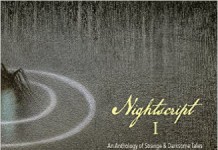 Jonathan Grimwood‘s “The Last Banquet” comes garnished with superlatives, so much so that I’ll promise to avoid serving up more stale double entendres about “a feast of a book.” Suffice it to say that this life story of Jean-Marie Charles, Marquis d’Aumout, from his earliest memory in 1723 “crunching happily on a stag beetle” in the ruins of his starved parents’ manor, to his death in 1790 with sans-culottes pounding at his door, has earned its author a Michelin three-star ranking that casts any Brit celebrity chef into the shade.
Jonathan Grimwood‘s “The Last Banquet” comes garnished with superlatives, so much so that I’ll promise to avoid serving up more stale double entendres about “a feast of a book.” Suffice it to say that this life story of Jean-Marie Charles, Marquis d’Aumout, from his earliest memory in 1723 “crunching happily on a stag beetle” in the ruins of his starved parents’ manor, to his death in 1790 with sans-culottes pounding at his door, has earned its author a Michelin three-star ranking that casts any Brit celebrity chef into the shade.
Jonathan Grimwood has spent over 15 years writing genre fiction, chiefly science fiction and alternate history, under the pen name Jon Courtenay Grimwood (shades of Iain Banks and Iain M. Banks) before sitting down to his first essay in ‘literary’ historical fiction, and it’s obvious that he’s used the time well. The story’s prose is perfectly judged and balanced, its learning lightly worn, and so neatly and naturally inserted into the telling that you hardly notice its entry.
“I jotted down the novel’s outline in a café over fifteen years ago, on a strip of paper torn from a napkin,” Grimwood explains in the book’s acknowledgements. “I folded the strip into the back of a notebook, knowing I wasn’t grown up enough or good enough to write it. Over the following fifteen years I took it out twice, deciding both times I still wasn’t ready. At the start of this year I went hunting for the notebook, and with Sam’s encouragement started writing. This is the result.”
Yes, he’s good enough now. That said, blurb readers who come to the table expecting a smorgasbord of decadent delights are going to go away disappointed. Despite all the hype, this is a sober and even melancholy story, tragic at points, with a modest and retiring protagonist who pursues his ruling passion with the self-restraint and objectivity of an Enlightenment philosophe.
He’s also a bit of a hero, despite the inevitable parallels with the Marquis de Sade (who makes a brief epistolary appearance towards the end of the book); a man who kills a wolf with his bare hands to save the woman he loves (and cooks and eats its heart), and later just survives months as a prisoner and fugitive following a diplomatic mission to Corsica (where he goes partly in quest of the legendary cheese made from breast milk). Perverted sexual frolics a la Laclos only appear in the shape of a little light bondage and wax play four-fifths of the way through. And the Marquis turns a cold eye on the pretensions of his peers: Nothing encapsulates the decadence of ancien regime Versailles better than Grimwood’s stomach-churning descriptions of the stink of piss and shit left by a ruling class that felt entitled to relieve itself anywhere.
 The predictable comparisons to the repellent central character of Patrick Süskind‘s “Perfume” are not only odious, they’re also beside the point in a novel devoted as much to politics and family history as to epicureanism—until right at the end, when the true dimensions of the Marquis d’Aumout’s obsession become clear. “Who wants to admit to himself that he is a monster?” he confesses as he prepares his last (or arguably second-to-last) banquet. “Everything I can eat, I have eaten. Every taste I can find, I have found.”
The predictable comparisons to the repellent central character of Patrick Süskind‘s “Perfume” are not only odious, they’re also beside the point in a novel devoted as much to politics and family history as to epicureanism—until right at the end, when the true dimensions of the Marquis d’Aumout’s obsession become clear. “Who wants to admit to himself that he is a monster?” he confesses as he prepares his last (or arguably second-to-last) banquet. “Everything I can eat, I have eaten. Every taste I can find, I have found.”
And yes, as review-skimmers will know, the book is filled with exotic recipes, enticing enough to make the barely edible bearable. But these are mere details in a masterwork by a writer who has diverted the richer imaginative currents of genre fiction into the turgid mainstream and produced a delight. And it does not taste like chicken.
TeleRead Rating:


































